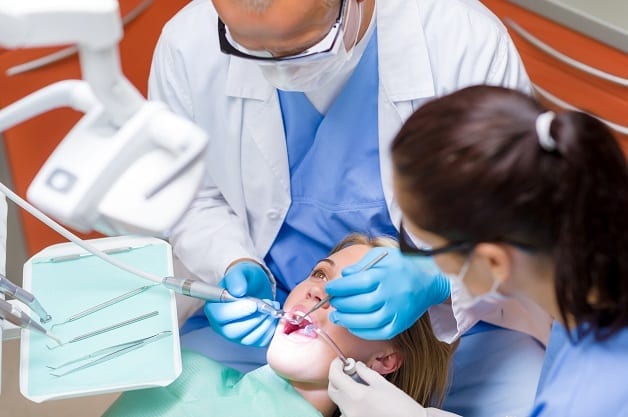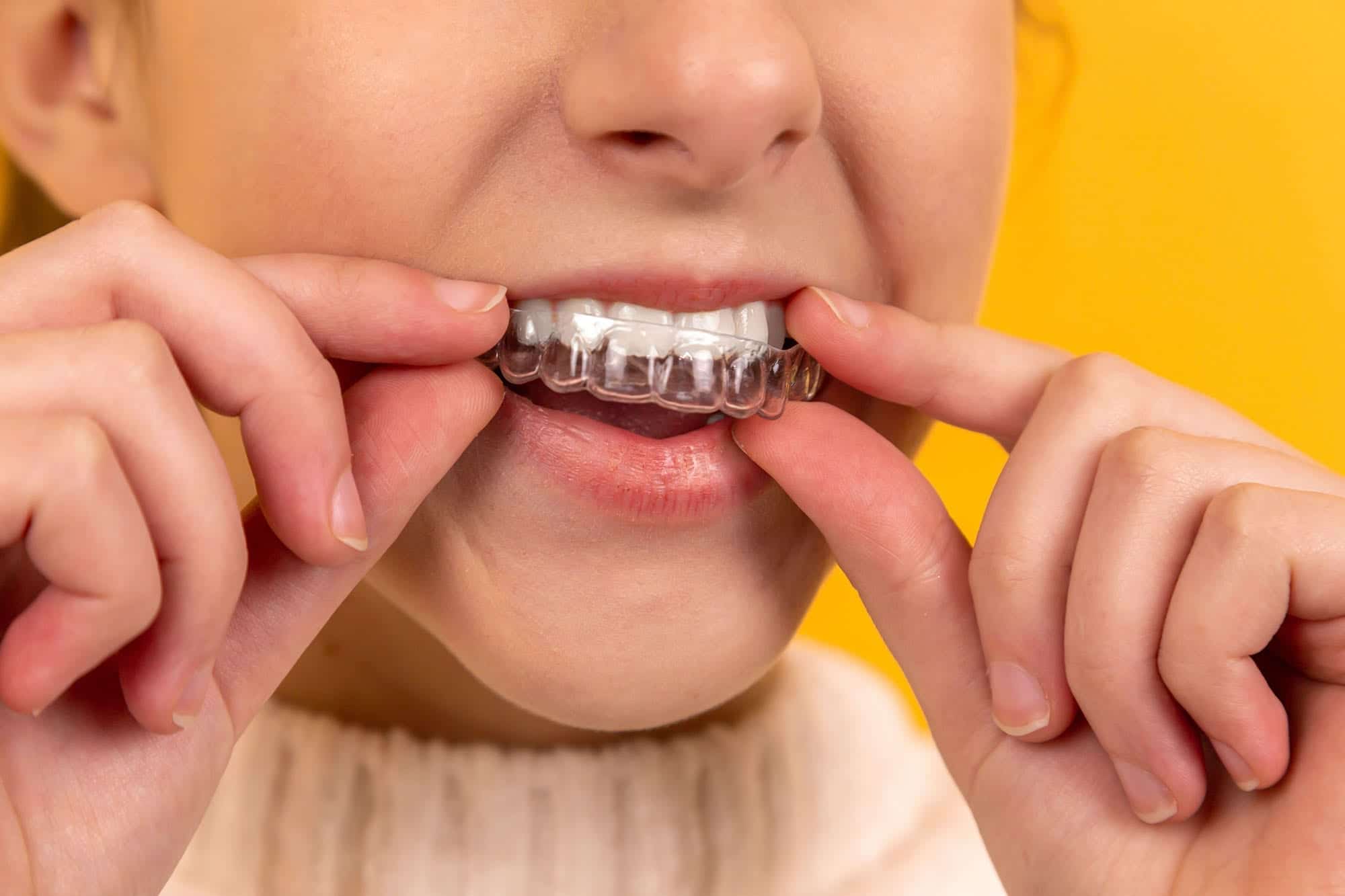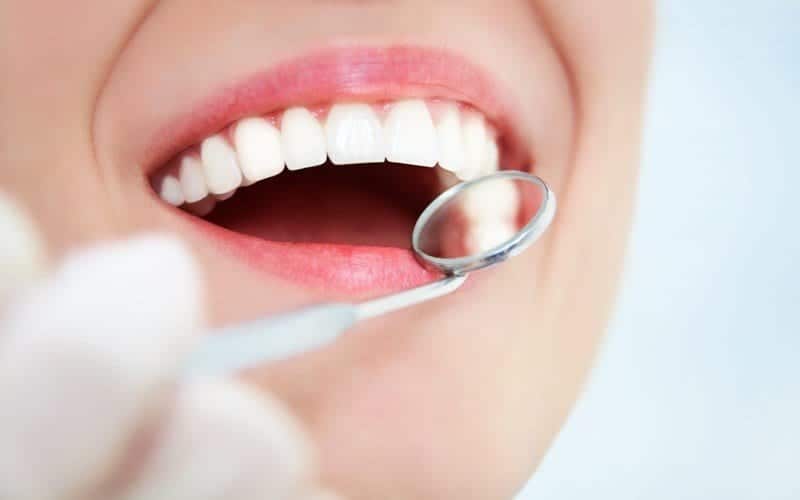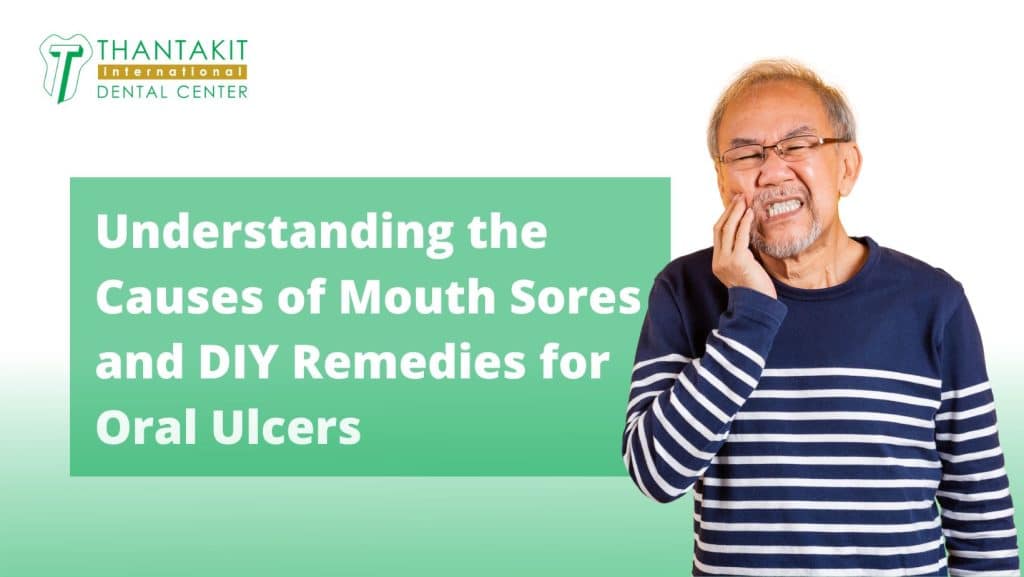Have you ever experienced pain in parts of your mouth? Or perhaps you’re feeling that pain at this very moment? As many other people have experienced, mouth sores (also known as mouth ulcers or oral ulcers) are common and painful.
These lesions can appear in various parts of the oral cavity such as the insides of the cheeks, the inner surface of the lips, on gums, on the sides and underside of the tongue, on the roof of the mouth, on the throat, and under the tongue on the floor of the mouth. Typically, these sores come in as small round spots with a white, yellow, or red center and a swollen border.
Although mouth sores often disappear on their own time and heal within a week or two, other cases have occurred where the sores were recurrent. In addition to that, the painful discomfort accompanying it may affect a person’s comfort in daily activities and quality of life. While they may seem like inconveniences, mouth sores can affect anyone. Knowing what oral ulcers are, what causes them, and how they can be treated is essential in effective management to help soothe discomfort and enable recovery.
Page Contents
Types of Mouth Sores
To understand the potential causes and their severity and identify the appropriate treatment, mouth sores can be categorized into multiple different types. Some of the most common types are:
-
Canker sores, or aphthous ulcers, are small noncommunicable lesions that typically heal in 1-2 weeks. They are most common and often appear on gums and soft mouth tissues. However, there are multiple kinds of canker sores, such as the common minor canker sores, the bigger major canker sores, and the tiny but clustered herpetiform canker sores.
-
Cold sores, called alternatively as fever blisters, are caused by the herpes simplex virus (HSV). They often appear on the lips as red, fluid-filled blisters. In its healing phase, a crust will form over the open sores before eventually falling off.
-
Traumatic ulcers, which are often induced by physical injury, possess a variable appearance depending on the injury sustained. Amongst all traumatic ulcers, shared characteristics involve redness, inflamed borders surrounding the tissue, and swelling around the affected area.
In addition to these specified details, it should be noted how each type of mouth sore has its distinct characteristics, be it the canker sores’ round appearance with a white or yellow center, the cold sores that appear as fluid-filled blisters, or the traumatic ulcers that are accompanied by redness and swelling as a sign of physical injury. Not only can the appropriate treatment be administered, but awareness of these types can aid in better oral health care by understanding which preventive measures apply to what and whatnot.
Symptoms of Mouth Sores
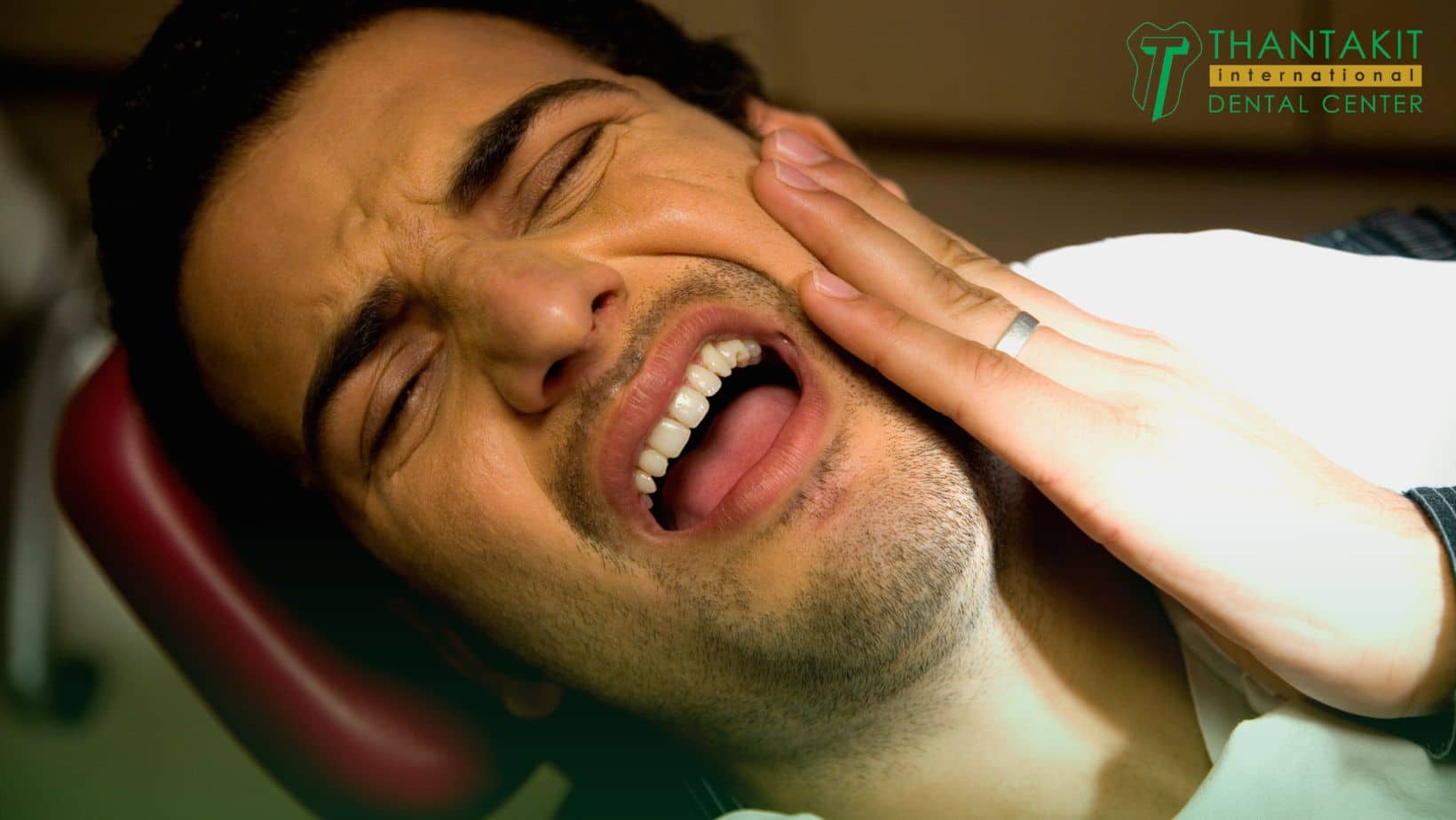
While recognizing the types of mouth sores gives insight into what symptoms can appear, knowing each specific sore can help provide targeted relief and can enable proactive care depending on what symptom is present. Listed here are some of the possible symptoms:
-
Pain or discomfort through constant, dull aches in the affected area of the oral cavity with sharp, shooting pain once exposed to food or water. Consuming hot, spicy, or acidic foods like citrus can also increase pain.
-
Swelling or redness around the sore due to inflamed borders, making them appear puffy.
-
Small, round, white, or yellow patches appear usually during canker sores.
-
Burning or tingling sensation before sore appears, specifically during cold sores before the formation of the blisters.
-
Fever or swollen lymph nodes are common during HSV outbreaks which are accompanied by cold sores. This occurs particularly in severe or initial infections, with subsequent infections being less severe.
The symptoms that accompany mouth sores can usually lead to problems regarding difficulty in eating, drinking, or speaking. Since the impediment of these basic skills can lead to discomfort, reinforcing attentive care by ensuring each remedy is appropriate can often empower individuals in their self-care options.
Causes of Mouth Sores
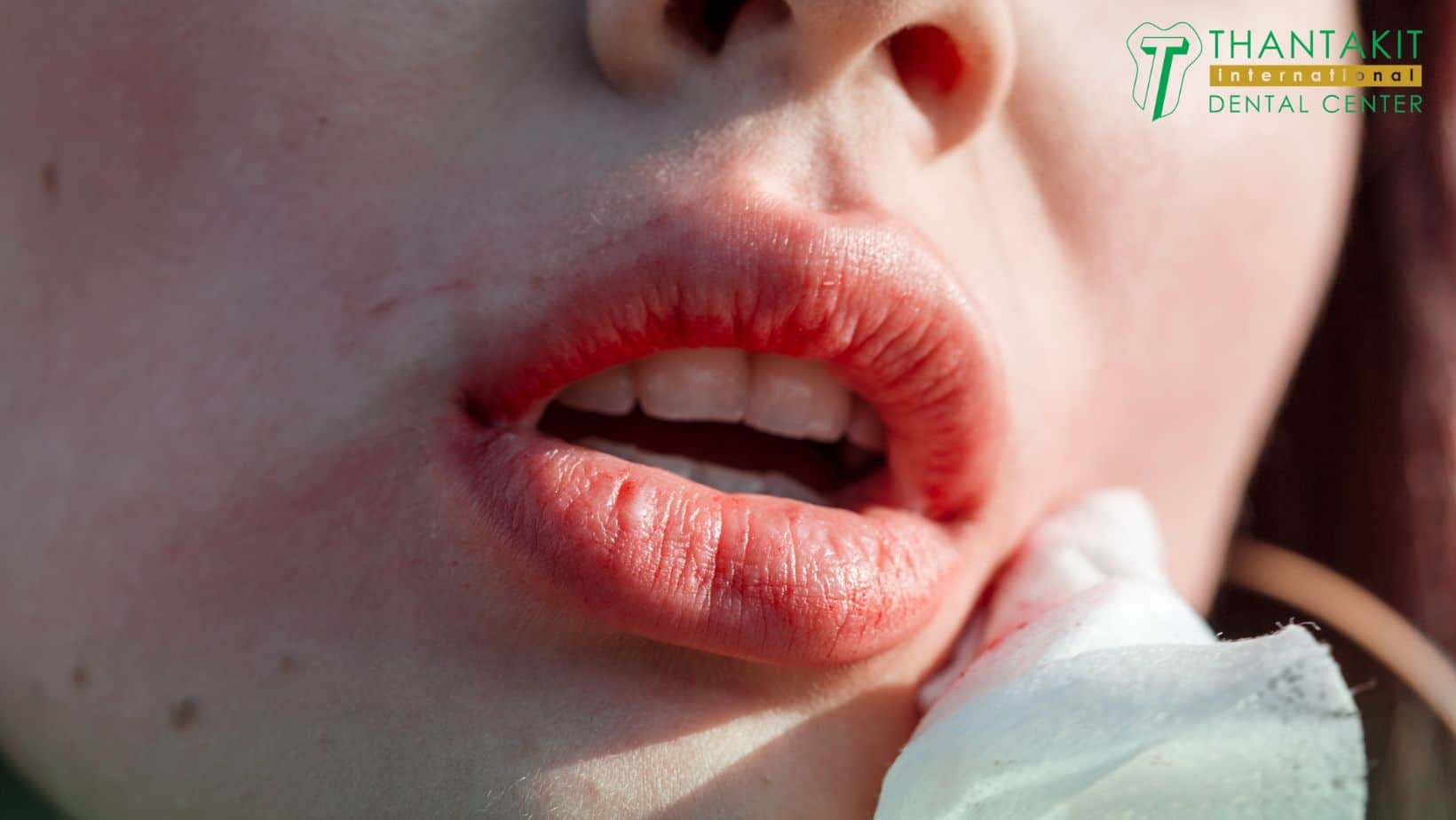
However, it is not enough to understand symptoms for proper treatment. Being aware of the causes enables anyone to take necessary steps for prevention. Recognizing the triggers of mouth sores can allow preventive measures to take place by developing the self-awareness needed to foster healthy lifestyle changes.
Here are some possible causes of mouth sores:
-
Minor injuries: Causes traumatic ulcers through the biting of the cheek, irritation from braces, and the consumption of rough foods that can cause irritation like nuts (almonds, walnuts, peanuts, etc.), seeds (sunflower seeds, pumpkin seeds, and sesame seeds), crunchy food (chips, crackers, pretzels), spicy foods, acidic foods, and more.
-
Viral infections: Causes mouth sores like cold sores from herpes simplex virus (HSV) often to those with weaker immune systems like children.
-
Vitamin deficiencies: B12, iron, and folate which are necessary for healthy cell growth repair, proper oxygenation of tissues, and proper nervous system and immune system health when deficient weakens the body’s ability to fight off viral infections and prevent canker sores from occurring.
-
Hormonal changes: Hormonal fluctuations can cause mouth sores like those during menstruation due to progesterone influence which can weaken the immune system and increase susceptibility to inflammation and mouth sores. Additionally, hormonal changes can reduce the production of saliva, which acts as the natural protective barrier in the cavity, thereby increasing the risk of mouth sores.
-
Stress and anxiety: Much like hormones, stress and anxiety can weaken the immune system through the release of “stress hormones” called cortisol which, during elevated levels, can suppress the immune system’s ability to stave off infections and inflammation. Additionally, stress can reduce saliva production, which, together can compromise oral health and increase susceptibility to mouth sores.
-
Autoimmune diseases: These are diseases occurring when a body’s immune system accidentally attacks its tissues. Examples of these autoimmune diseases are Behçet’s Disease which is a rare disorder that contributes to the inflammation of blood vessels in the body, Lupus which affects various organs including the mouth, Crohn’s Disease which is an inflammatory bowel disease, Lichen Planus which is a chronic inflammatory disease that affects the mouth, and more, all of which causing oral ulcers.
-
Side-effects of Medication: Some medications like Chemotherapy drugs, non-steroidal anti-inflammatory drugs (NSAIDs), Angiotensin-converting enzyme (ACE) inhibitors, Bisphosphonates, and more can induce or increase susceptibility to mouth sores as side-effects.
-
Allergic reactions: reactions like the Oral Allergy Syndrome, in severe cases, can lead to mouth ulcers. Additionally, other allergies like food allergies can cause oral symptoms which, in some cases, can also lead to mouth ulcers.
-
Tobacco use: Smoking and chewing tobacco can be grounds for direct irritation to the delicate tissues of the mouth, directly causing the formation of mouth sores. Additionally, it contributes to the reduction of saliva production and the weakening of the immune system, which, as mentioned prior can increase susceptibility to mouth sores due to the body’s incapacity to combat infections.
-
Oral hygiene: Inadequate oral hygiene can be grounds for the formation of oral ulcers, as it can lead to the buildup of bacteria and plaque which serves to irritate the oral tissues and the gums.
By understanding these causes, reducing the risks of mouth ulcers becomes easier since it enables not just countermeasures against the symptoms, but also against the root causes of those aforementioned symptoms. Considering these causes can foster a sense of proactivity which leads to an overall healthier lifestyle.
DIY Remedies for Oral Ulcers
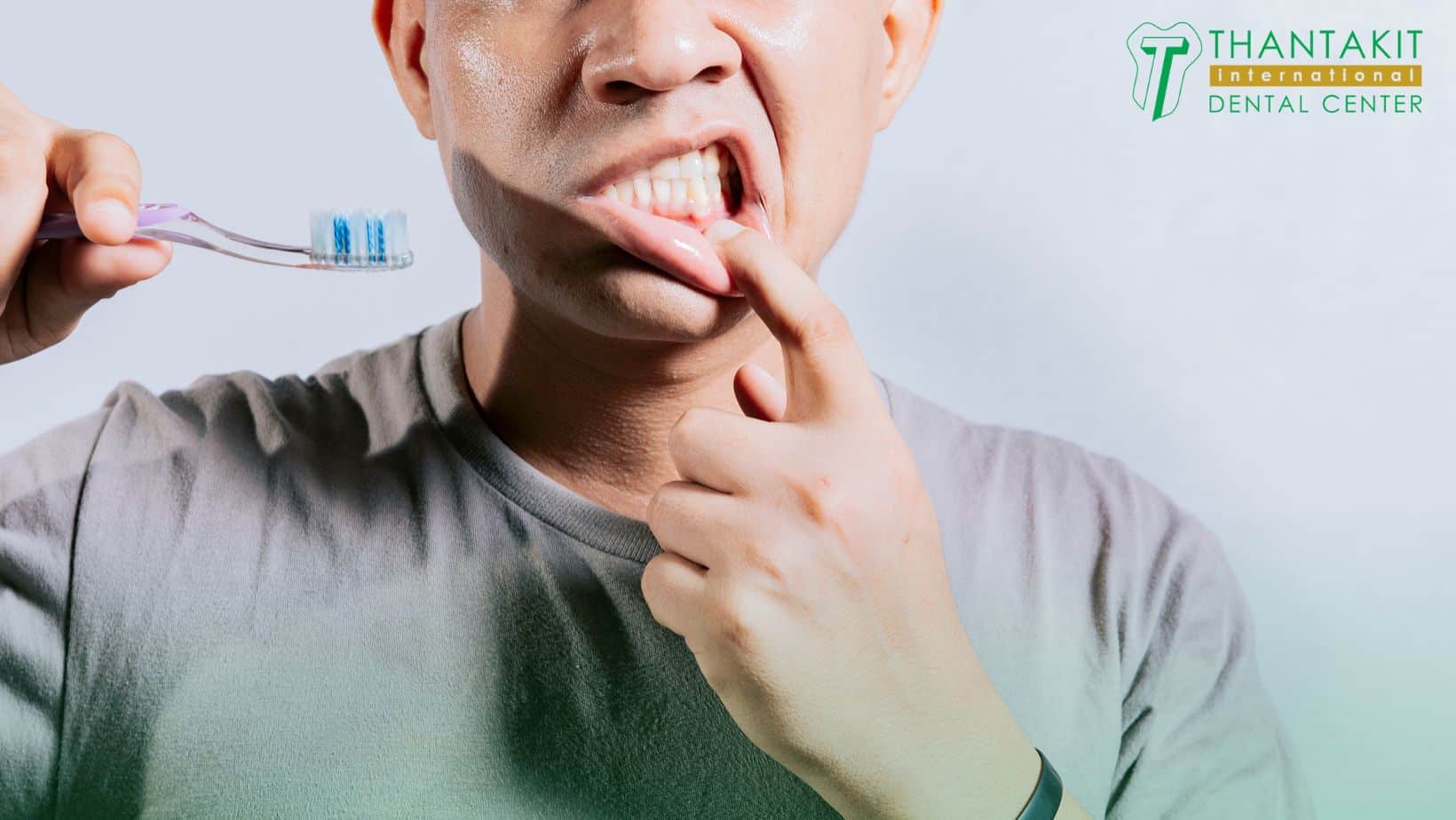
Now that we know the causes and symptoms, acting is the next step. In case mouth sores are present, here are Do-It-Yourself (DIY) remedies that can be easily done at home:
-
Saltwater Rinse: A basic remedy requiring only one teaspoon of salt and a cup of warm water per session. To utilize this remedy, dissolve the teaspoon of salt into the cup of water, then gargle the concocted solution for 30 seconds before spitting the solution out. It is recommended to repeat this process 3-4 times a day. While the experience may be painful, especially when concerned with sensitive mouths, saltwater possesses easily accessible antiseptic properties that can aid in killing bacteria and reducing inflammation. This is accomplished by drawing the moisture out of the ulcer to design a dry environment that can prevent bacterial and fungal growth.
-
Baking Soda Paste: This basic remedy needs baking soda and water to form a small paste. This paste should then be applied gently using a cotton swab to the affected region of the ulcer. A few minutes after its application, warm water should then be used to rinse the oral cavity. While this remedy can be mildly irritating, it is generally tolerable. Baking soda is used to neutralize the acidity present in the affected region and reduce inflammation. This is because baking soda possesses alkaline properties that can create an oral environment that balances the pH level in the cavity in such a way that is unfavorable for bacteria.
-
Honey Application: While considered a natural sweetener, honey possesses properties that make it an anti-inflammatory and antibacterial agent. By applying a small amount of honey directly to the ulcer using a cotton swab, its natural enzymes and antioxidants can aid in fighting the infection and promoting healing while generally being gentle and soothing.
-
Oil Pulling: Using a spoonful of coconut oil and swishing it around the mouth for 15-20 minutes before spitting it out, this remedy aids in combatting mouth sores due to its antimicrobial properties that help in reducing inflammation, irritation, and killing bacteria. This is because coconut oil contains lauric acid: a type of antimicrobial fatty acid. The experience surrounding the use of this remedy is generally considered to be generally pleasant, albeit a bit oily.
-
Aloe Vera Gel: Considered an option for pain relief for mouth sores, aloe vera gel feels both cool and soothing when applied to the affected area. Using a small amount and applying it directly to the ulcer using a cotton swab, aloe vera gel possesses anti-inflammatory and healing properties through the compounds it contains that reduce inflammation and promote tissue regeneration. Hence, apart from being a painkiller, aloe vera gel also speeds up healing.
-
Chamomile Tea Bag Compress: Since chamomile possesses properties through its compounds like apigenin which are both soothing and anti-inflammatory, this remedy is also effective in reducing the pain and inflammation that accompanies oral ulcers. This can be accomplished by dipping a chamomile tea bag in warm water before applying it directly to the affected region once it has cooled for a few minutes. This is repeated 3-4 times.
-
Milk of Magnesia: As an antacid that aids in neutralizing acidity in the oral cavity, milk of magnesia, when dabbed in small amounts directly onto the ulcer, creates a cooling effect that can help reduce pain. As a bonus, it can create a protective barrier over the ulcer which reduces irritation and promotes healing.
-
Ice Application: Since ice is a popular pain-relieving option, wrapping an ice cube in cloth and then gently applying it to the ulcer can help numb the nerves and therefore reduce the sensation of pain whilst simultaneously minimizing the swelling by constricting blood vessels and reducing blood flow. This is often used on mouth sores specifically caused by traumatic injury.
-
Yogurt: Considered an effective remedy for mouth sores, yogurt—which is rich in probiotics that contribute to beneficial microbes—helps maintain a healthy oral microbiome. The beneficial bacteria can combat harmful bacteria that contribute to the production of further mouth sores. Additionally, yogurt has cooling and soothing properties that can reduce inflammation and mollify pain. While plain consumption also works, direct application by dipping a cotton swab in unsweetened yogurt and then applying it to the ulcer is also a method of using it.
In addition to those DIY remedies, we also recommend these tips to help maximize your oral health:
-
Avoid acidic, spicy, hot foods and drinks. This is because spicy foods can irritate the tissues of the mouth and aggravate ulcers, causing more pain. Additionally, acidic foods can increase the acidity inside the oral cavity, which worsens the ulcer. Hot foods and drinks, on the other hand, can irritate the ulcer, which may delay the healing process.
-
Stay hydrated. Drinking plenty of water helps maintain oral health and promotes healing. Since drinking water stimulates saliva production, food particles and bacteria present in the oral cavity can be washed away which reduces the risk of infection. Additionally, while a bit painful at times, water can also aid in soothing irritated tissues like mouth sores.
-
Maintain good oral hygiene. Since bacteria and food particles contribute to infection, brushing the teeth and flossing regularly whilst using mouthwash can aid in keeping the mouth clean. Proper hygiene is a great preventive measure when concerned with mouth sores.
While these DIY remedies can aid in the healing process and provide relief, it should be noted with caution that consulting with healthcare professionals is significantly more effective.
Why You Should Consult Thantakit for Mouth Sores

Whether you need treatment for mouth sores or want to achieve long-term oral health, it’s essential to turn to dentists who are highly committed, highly skilled, and highly trained. With decades of experience in this industry, Thantakit International Dental Center, one of the leading dental clinics in Bangkok, Thailand, can provide the specialized care your mouth needs to not only treat mouth sores but to also prevent future occurrences.
With a gentle, patient-centered approach, our dental professionals will prioritize your comfort as they deliver effective treatment using the latest techniques and state-of-the-art equipment. Note that Thantakit has a longstanding reputation serving patients from around the globe, and our multi-faceted approach grants us confidence that our facilities and our services will be reliable.
Contact our international dental center today through our website www.thantakit.com for any inquiries regarding your oral health.



